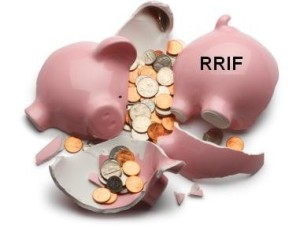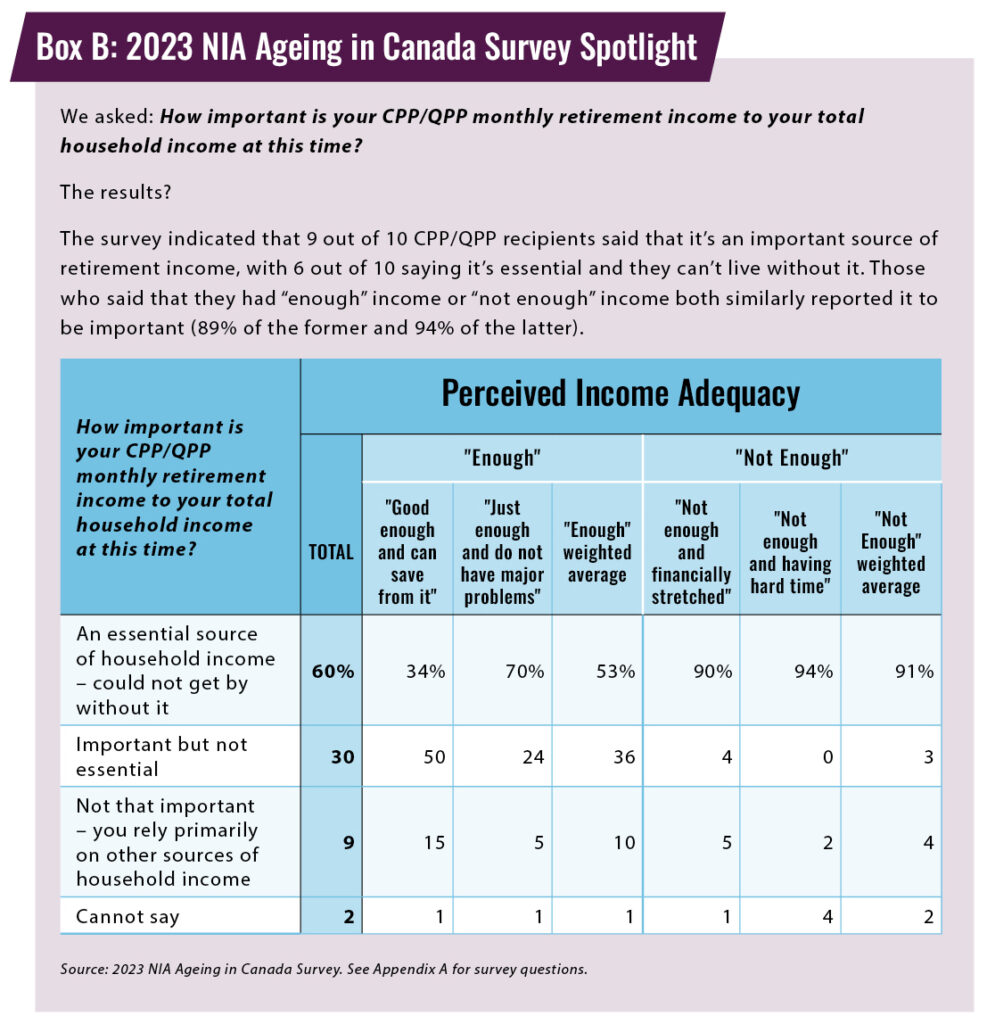My latest  column looks at a topic of high importance for near-retirees or already retired folk who have reached their early 70s: the requirement to convert an RRSP to a Registered Retirement Income Fund (RRIF) and/or annuitize.. You can find the full column by clicking on the highlighted text here: How to cope with the RRSP-to-RRIF deadline in your early 70s.
column looks at a topic of high importance for near-retirees or already retired folk who have reached their early 70s: the requirement to convert an RRSP to a Registered Retirement Income Fund (RRIF) and/or annuitize.. You can find the full column by clicking on the highlighted text here: How to cope with the RRSP-to-RRIF deadline in your early 70s.
As the column mentions, this deadline is rapidly approaching for my wife and me.
Here’s how Matthew Ardrey, senior wealth advisor at Toronto-based Tridelta Financial, sees the big picture on RRSP-to-RRIF conversions: “By the year in which one turns 72, the government mandates that the taxpayer convert their RRSP to a RRIF and draw out at least the minimum payment. The minimum payment is calculated by the value of the RRIF on January 1st multiplied by a percentage rate that is tied to the taxpayer’s age. Each year older they get, the higher that percentage becomes.”
Currently, at age 72 (the latest that you can receive the first RRIF payment), the minimum withdrawal is a modest 5.28% of the market value of your RRIF assets. By age 95, this increases to 20% of the market value, says Rona Birenbaum, founder of Caring for Clients.
You need to take the RRSP to RRIF deadline seriously: you must convert by December 31st of the calendar year in which you turn 71. What if you miss it? Then, Birenbaum cautions, 100% of your RRSP becomes taxable income in that year, which will often push you into the highest marginal tax rate. Needless to say, for those with hefty RRSPs, losing almost half of it in a single tax year would be disastrous.
There is of course the option of using your RRSP to purchase an annuity, but Birenbaum observes that most clients opt for the greater flexibility of the RRIF.
Given the normal human inclination to procrastinate, most near-retirees will probably want to keep their RRSPs going until the bitter end and aim for this “latest” deadline for conversion. However, technically, Birenbaum says you can open a RRIF much earlier than is mandated. “There is no earliest age, though it’s rarely beneficial to open a RRIF during your working years.”
Note that when RRIF income is received, it’s taxed as fully taxable income, Ardrey says, “There is no preferential treatment for this income, like there would be for capital gains or Canadian dividends. Though this income is a cornerstone for many Canadians, it can also cause tax complications that were not there
While similar in several respects Birenbaum notes some important differences between RRSPs and RRIFs. Both are tax-sheltered vehicles, can hold the same investments, and withdrawals are fully taxable as income. However, RRSP contributions are tax-deductible, while you can’t contribute to a RRIF (so there are no tax deductions.)
RRSPs don’t have any mandated withdrawals, whereas RRIFs have mandated annual withdrawals, starting in the calendar year after you open the account. With RRSPs, there are no minimum withdrawals, although they are permitted: your only option is to request a one-time lump sum withdrawal (and pay tax on it at various rates depending on the amount you wish to withdraw).
RRIFs have mandated annual minimum withdrawals, which rise steadily over time. Minimums are outlined on this website. Unlike an RRSP, a RRIF lets you automate withdrawals for ease of cash flow management (monthly, quarterly, annually etc.)
Unless the taxpayer requests it, there are no withholding taxes on RRIF minimums. A second complication is that this extra income from the RRIF can also trigger clawbacks of Old Age Security (OAS) benefits. If income exceeds $90,997, OAS payments will be clawed back by $0.15 for every dollar over this amount until they reach zero, Ardrey warns.
Pension splitting and using your spouse’s age
Fortunately, there are ways to minimize these possible tax consequences. If you are one half of couple, you can benefit from a form of pension income splitting: RRIF income can be split with a spouse on their tax returns, providing the taxpayer is over the age of 65. “Even if incomes are in a situation where a RRIF income split would not seem logical, a split of $2,000 can provide a pension tax credit for the spouse. This could also be the difference between being impacted by the OAS clawback or not.”
Another trick is basing your minimum RRIF payment on your spouse’s age. This works when you have a younger spouse/ By doing this, the taxpayer gets their younger partner’s age percentage applied to their RRIF minimum payment.
The full MoneySense columns goes into the mechanics of withholding taxes and what happens upon death.
The Mechanics of Conversion
Birenbaum says you can usually expect your financial institution to reach out to you to remind you before the deadline. There will be paperwork to file at the institution where you’d like to hold the RRIF, although it’s not required that the RRIF be at the same place your RRSP is held. Your existing RRSP investment holdings can be simply transferred to your new RRIF account. The initial paperwork will ask you to set your desired payment schedule (day of month and payment frequency), to choose RRIF minimums based on your age or that of your younger spouse.
 My latest MoneySense Retired Money looks in more detail at the National Institute of Ageing’s recent series of papers on CPP (and OAS). As the Hub reported on April 11th, few Canadians are aware that delaying CPP benefits to age 70 can more than double (2.2 times actually) eventual monthly benefits compared to taking it early at age 60. That blog reproduced a chart from the NIA that showed just how much money Canadians are leaving on the table by NOT deferring benefits as long as possible.
My latest MoneySense Retired Money looks in more detail at the National Institute of Ageing’s recent series of papers on CPP (and OAS). As the Hub reported on April 11th, few Canadians are aware that delaying CPP benefits to age 70 can more than double (2.2 times actually) eventual monthly benefits compared to taking it early at age 60. That blog reproduced a chart from the NIA that showed just how much money Canadians are leaving on the table by NOT deferring benefits as long as possible.





